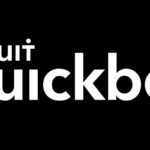Podcast: Play in new window | Download | Embed
After all that has been said and written how is it possible that the banks may actually have set a good example?
[audio:https://financialgymforbusiness.com/wp-content/uploads/2013/07/23_How-Banks-set-a-good-example-Huh-audio.mp3]
To download the audio file to your computer, please right click on this link and choose save link as, or save target as, depending on your browser.
Criticised for reckless lending; but who did they lend to? Well us.
When times are good, just like in business, shortfalls in one area can be compensated for in another.
However when we are faced with danger of crisis the tendency is to do exactly what the banks did and retreat and withdraw from the norm
Let me use paint a picture or scenario for you. Imagine you are a tour guide who used to take city people through the jungle to see the sights on a regular basis. In hindsight you may consider this to be maybe a little reckless, bearing in mind the danger that lurks in the jungle and the lack of experience of the people who you are guiding. Yet you keep doing this because these crazy naive people keep trusting you to take them on the tour.
Then one day while you are out with a group, a large wild cat, pounces from nowhere and you are running for cover. You escape and find a cave to hide in but your tourists are left out in the danger zone. You know you are the only thing standing between them and getting eaten alive as you know the way out of there but you decide to stay put, what good would it do if you all got caught. And if you did manage to survive you could then help the tourists.
Only by the time you do emerge from the cave, some have been eaten alive, others injured and those that got out of the jungle were traumatised and mistrusting of you because they believe you left them when they needed you most.
Yes it is a silly example, but is not dissimilar to how the public perceives what happened between the banks and small businesses when the financial crisis of 2007 onwards struck. After years of happily taking people into the jungle; when danger hit, the banks retreated and the businesses that had no contingency faced extinction. In their case the wild cat was lack of money no longer being able to rely on the banks to get or extend loans or overdrafts.
So if the banks were such turncoats as is popular belief, why should you follow any example that they set?
Why because they taught us one valuable lesson, when your ability to make money is under threat, whether from:
- Lack of sales,
- Inability to work, for example if you are self-employed and get ill.
- Economic forces like the credit crunch hitting your business
- A downturn in interest in your product or service, think Sony Walkman.
What do you do (apart from sort out how you can improve the situation) you beef up and/or protect your assets.
What do you mean by that George?
Well for most of us, it is the items that make up your balance sheet. Don’t get too hung up on what a balance sheet is for now, I know it is just another thing that is a pain to get your head around.
I will demystify that subject in another video so don’t worry.
For now; I just want you to understand that one of the things it shows is what your business actually owns that may or may not be worth money if you tried to sell them. The balance sheets also shows you what cash you have left over at any point in time. If sales & cash flow are under pressure; having reserves to fall back on could well help you ride out storms.
As with most small businesses you may not own lots of property, valuable plant and machinery, run a vintage wine cellar, etc so your balance sheet reserves may well be mainly made up of cash in the bank and maybe your two year old all-in-one printer.
If you rely on borrowing, whether via an overdraft, loans or credit cards, then having cash sitting in the bank is maybe a distant dream at the moment, but it is what is needed.
And this finally is what the banks, though unintentionally showed us By tightening their lending they sat on the money. Security became the focus. Savvy business owners of course generating income but keep some back for contingency and investment.
Our much clued up older generation would call it “putting something aside for a rainy day”
The trick is to be able to do it even when we need the money for other things. The majority of us spend what we earn first and see if there is anything left. But the odds are very strong that there will always be something that you need to pay for even when you are doing really well, so getting into the habit of moving money out of the way before you spend will be one of the things that will build your financial foundations.
In future months I will give you some pointers, tools & techniques that you can use to do this for yourself.
And if you sign up for my freebies, you will be one of the first to be notified when they become available.





